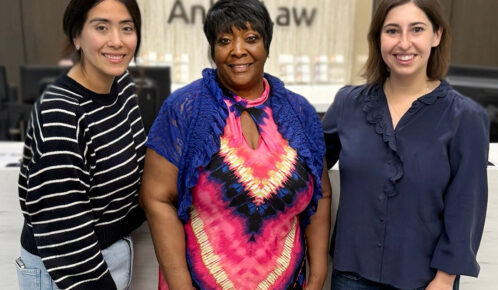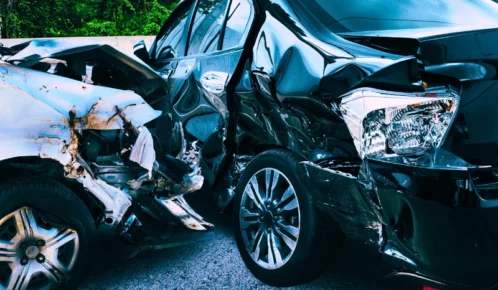What are the dangers of chlormequat? People exposed to the chemical chlormequat chloride could suffer various conditions, including delayed development, reduced fertility, injuries to fetuses, and other forms of reproductive harm, according to a recent class action lawsuit against cereal makers.
Table of Contents

If you suffered damages due to exposure to chlormequat, contact the class action attorneys at Ankin Law by calling 312-600-0000.
What Is Chlormequat?
Chlormequat chloride is a chemical that many farmers use on food crops. It functions as both a pesticide and a plant growth regulator (PGR), preventing plants from growing before blooming through the use of hormone blockers.
While chlormequat may help with farming, it isn’t safe for human consumption, recent lawsuits argue. While the use of this chemical is illegal in the U.S. when growing food crops, the Environmental Protection Agency (EPA) does allow the U.S. to import crops grown using chlormequat.
The harm that chlormequat can cause is making it the subject of recent mass torts cases involving people who claim that they have suffered harm from exposure to the chemical. Specifically, a recent Environmental Working Group (EWG) study found that oat-based cereals contain this substance, leading customers to consume it. A couple of the named brands involved in the mass torts include Cheerios and Quaker Oats, with the lawsuits arguing that the manufacturers of these cereals should have known about and addressed the presence of chlormequat in their products.
What Are the Health Risks Associated With Chlormequat Exposure?
Chlormequat presents several health risks to individuals, according to more recent toxicological studies.
Studies have found that chlormequat residues may cause harm to fetuses in the womb, growth hormone disruptions, and reduced fertility at certain levels. In fact, one industry study in the National Library of Medicine suggests that even doses lower than what the EPA and other agencies consider safe could lead to fertility issues and reproductive harm.
While there isn’t much conclusive evidence to demonstrate the potential harm of chlormequat in humans, studies are beginning to find that this chemical could impact human consumers.
Does Chlormequat Have an Impact on the Environment?
While the effect on plants is ideal for farming, chlormequat chloride may have negative effects on animals. Over the years, studies have linked the chemical to fertility problems in pigs and other livestock. In fact, Danish pig farmers using grains treated with chlormequat noticed a decline in fertility among pigs due to fetal growth issues.
A growing number of people and organizations have begun to take action against cereal manufacturers and the agricultural industry for their use of chlormequat chloride, including PIRG, which delivered over 10,000 signatures urging the EPA to stop using this chemical on food crops.
Organizations like PIRG want to ensure chlormequat is safe for human exposure before the EPA and other agencies approve its use on crops and in consumer products.
Is There a Chlormequat Class Action Lawsuit?
At this time, there is a newer class action lawsuit against General Mills, the manufacturer of Cheerios. The case started when Benjamin and Katrina Necaise claimed that General Mills sold Cheerios and other related cereal products without disclosing or otherwise addressing the dangerous levels of chlormequat they contained.
More specifically, the Necaises are representing consumers in California who may have bought Cheerios or other affected General Mills products within the last four years.
According to the lawsuit, General Mills failed to warn consumers of chlormequat content or include the chemical in its list of ingredients, leading to negligent marketing practices. These actions also go against California’s Consumer Legal Remedies Act, the lawsuit claims.
Another class action lawsuit came earlier in the same month against Quaker Oats. Plaintiff Lilian Fitzgerald argued that Quaker Oats also failed to clearly indicate the inclusion of chlormequat in its products.
Are the Chlormequat Cases Under Mass Tort Law?
In the chlormequat cases, attorneys and courts are treating them as class action lawsuits involving multiple plaintiffs. This is different from mass tort cases, where individuals file multiple lawsuits against a single defendant.
Mass Torts vs. Class Action Lawsuits
Mass tort cases involve several individuals who come together to file a lawsuit against a negligent defendant. They may begin with several individual suits before a mass torts lawyer combines them into a single suit.
Meanwhile, a class action lawsuit may begin with individual plaintiffs, but they then turn into much larger lawsuits representing many individuals. The cases involving chlormequat are class action suits that represent consumers of General Mills and Quaker Oats products, such as the class action suit against General Mills representing consumers in the state of California.
An attorney with experience handling mass tort and class action cases can help you determine if your case qualifies for a mass tort or class action lawsuit, but when it comes to chlormequat, individuals will likely join one of the class action lawsuits against cereal brands.
Are the Brands in the Class Action Suits Unreasonably Dangerous Products?
The class action lawsuits against General Mills and Quaker Oats claim that these companies failed to properly market and warn of the dangers of chlormequat, making their products arguably unreasonably dangerous.
An unreasonably dangerous product is any type of product that poses more dangers to consumers than what consumers and others should reasonably expect with normal intended use. While many products are dangerous, such as heavy equipment and chemical products, unreasonably dangerous products could cause harm through intended use that consumers may not be able to foresee.
Generally, there are three main factors that can contribute to an unreasonably dangerous product, including:
- Marketing defects: These are defects that pertain to a product’s marketing, often when a retailer or manufacturer neglects to warn of a product’s dangers or provide instructions for proper and safe use.
- Manufacturing defects: An unreasonably dangerous product could also result from a manufacturing issue that renders an otherwise safe product unsafe when used as intended. For instance, a flaw in a product’s manufacture could make it prone to combustion, posing a serious risk to users.
- Design defects: The design of a product could also make it unreasonably dangerous, making the manufacturer or another party liable for flawed design.
Depending on the nature of the case, manufacturers, retailers, marketers, or others could be liable for unreasonably dangerous products.
In the class action lawsuits involving General Mills and Quaker Oats, plaintiffs are arguing that the manufacturers are liable for marketing defects, as they failed to indicate the presence of dangerous levels of chlormequat in their products.
Compensation Available in Chlormequat Cases
Like other product liability cases, the plaintiffs in the recent chlormequat class action lawsuits could recover different types of compensation if they sustained damages because of the consumption of chlormequat.
These damages include medical expenses, lost income or lost earning capacity, disability, and pain and suffering. If victims suffered reproductive harm or other effects from chlormequat consumption, they could recover compensation via the class action lawsuit with the help of an attorney.
To seek compensation, plaintiffs will need sufficient evidence proving the damages, including the recent purchase or consumption of General Mills or Quaker Oats products, medical records, proof of lost income, and details of non-economic damages such as pain and suffering. However, if you are unable to obtain of this evidence on your own, an experienced lawyer can assist with this process. For instance, your attorney could help find proof that you consumed Quaker Oats or General Mills oat-based products within the last four years and procure medical records from medical professionals.
Taking Action Against Manufacturers for Product Liability
Manufacturers have a responsibility to indicate the contents of their products. The class action suits against cereal manufacturers argue that General Mills and Quaker Oats should have warned of the dangers their products posed due to the inclusion of chlormequat.
To get involved in a class action lawsuit against liable cereal makers, a mass torts attorney could help you seek total compensation. The right attorney will review the evidence in your case, organize it, and identify and calculate all damages resulting from the consumption of chlormequat through oat-based cereal.
Have you suffered reproductive harm or other related issues linked to chlormequat after consuming oat-based cereal? An attorney can meet with you in a free consultation to discuss the details and help determine if you qualify for inclusion in a class action suit.
To find out whether you have a viable case that may warrant compensation, contact us at Ankin Law today. Our experienced class action lawyers in Chicago can determine what options are available to you.



